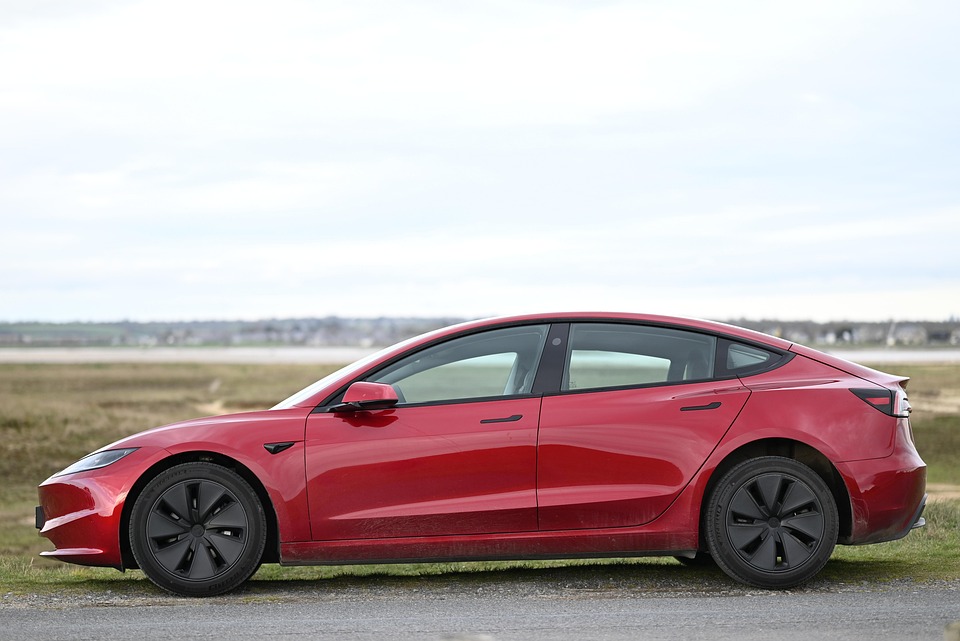Unplugged: Debunking Myths About Electric Vehicles
As the world shifts toward a more sustainable future, electric vehicles (EVs) have emerged as a cornerstone of the transportation landscape. However, with their rise in popularity, several myths and misconceptions have taken root, clouding public perception and potentially hindering adoption. This article aims to debunk some of the most persistent myths about EVs, shedding light on their benefits and realities.
Myth 1: Electric Vehicles Have Limited Range
One of the most common fears surrounding electric vehicles is range anxiety—the concern that an EV won’t have enough battery power to reach its destination. While early models indeed had limited range, advancements in technology have significantly increased the distance EVs can travel on a single charge. Many modern electric vehicles can travel over 300 miles per charge, making them competitive with gasoline-powered vehicles for most daily driving needs. Moreover, the development of fast-charging infrastructure allows for rapid recharging, diminishing range anxiety further.
Myth 2: Charging Takes Too Long
Another prevalent misconception is that charging an electric vehicle takes an unreasonably long time. While it’s true that recharging can take longer than filling a gas tank, this narrative fails to consider how many EV owners refuel their vehicles. Most EV charging happens overnight at home, allowing drivers to start each day with a full battery. Public charging stations offer various speeds, with many fast chargers providing 80% of a battery’s charge in about 30 minutes. For many drivers, this time can be spent running errands or enjoying a coffee.
Myth 3: EVs Are Too Expensive
The upfront cost of electric vehicles is frequently cited as a barrier to adoption. However, potential buyers should consider total cost of ownership, which takes into account fuel, maintenance, and repair costs. EVs are often cheaper to maintain due to fewer moving parts and less wear and tear. Moreover, many governments worldwide incentivize EV purchases through tax credits and rebates, effectively lowering the initial purchase price. As technology continues to evolve, prices for EVs are expected to decrease, making them more accessible.
Myth 4: Electric Vehicles Are Bad for the Environment
Some critics argue that electric vehicles may not be as environmentally friendly as they seem, citing the emissions from electricity generation and battery production. While it’s true that the source of electricity matters, studies consistently show that EVs produce fewer greenhouse gas emissions over their lifetime than internal combustion engine vehicles. As the grid becomes increasingly powered by renewable energy sources, the emissions associated with EVs will continue to diminish. Additionally, advancements in battery recycling and sustainable materials are making EV production more environmentally friendly.
Myth 5: Batteries Are Inherently Unsafe
Concerns about battery safety, particularly with respect to fire risks, are often amplified in media coverage. While lithium-ion batteries can pose risks under certain conditions, EV manufacturers have implemented rigorous safety protocols and designs to minimize risks. Research indicates that electric vehicles are not inherently more likely to catch fire than traditional gasoline vehicles. In fact, a National Fire Protection Association (NFPA) report showed that gas-powered cars are more prone to fire incidents when normalized for vehicle population.
Myth 6: EVs Lack Performance
Performance is a common concern for potential EV buyers, with many assuming that electric vehicles cannot compete with the driving dynamics of gasoline-powered cars. However, electric motors deliver instant torque, providing an exhilarating driving experience often unmatched by traditional vehicles. Many EVs boast impressive acceleration and handling capabilities, with some models outperforming luxury sports cars.
Conclusion: The Future is Electric
As we navigate the transition to cleaner, more sustainable transportation, it’s crucial to dispel the myths surrounding electric vehicles. By understanding the real capabilities and benefits of EVs, individuals can make informed choices that contribute to a more sustainable future. The myth-busting journey illustrates that electric vehicles are not just a trend but a viable, eco-friendly solution to modern transportation challenges. With technological advancements continuing to break barriers, the future of driving is undoubtedly electric.



